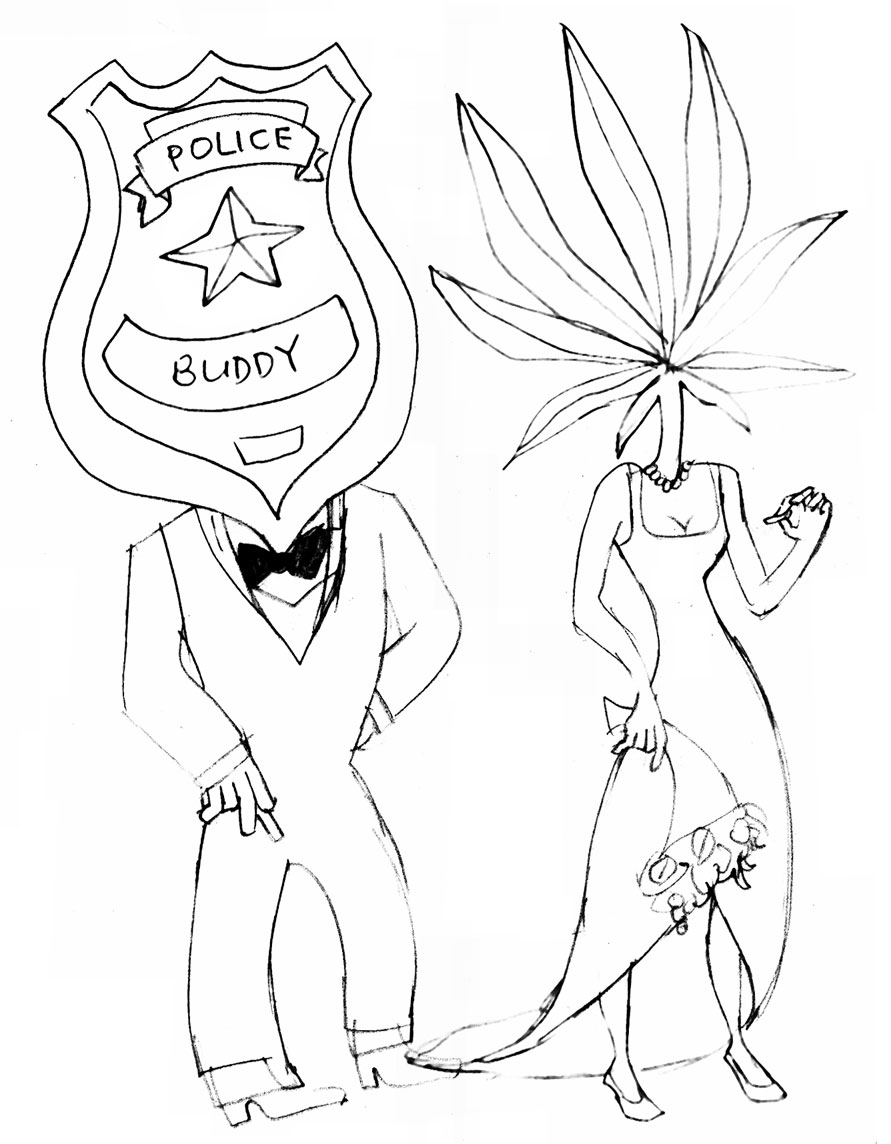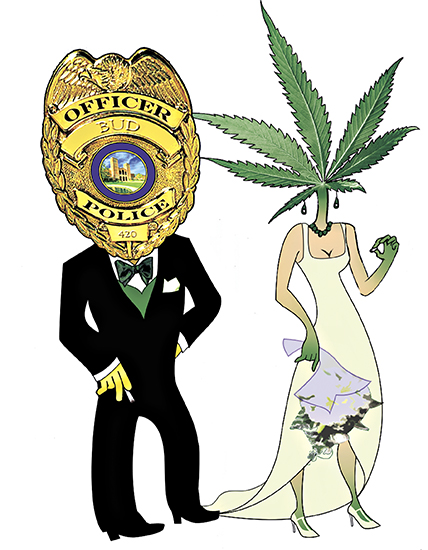
It is time America moves past its childish, hypocritical obsession with marijuana prohibition.
In a nation where 36 people die and 700 more are injured each day due to alcohol-related accidents and 440,000 people die each year from tobacco use (one in five American deaths), the claim that marijuana should not be legal because of so-called “related dangers” are unsupportable.
That is, of course, without mentioning the 81 Americans killed and 176 injured in the average day by firearms ““ a constitutionally protected right.
Conversely, a Brown University Student Services informational Web site on marijuana notes that it is “virtually impossible to overdose from marijuana, which sets it apart from most drugs,” and that “no one would argue that marijuana is as addictive as alcohol or cocaine.”
In his “Virtual Town Hall,” President Obama made light of a movement that has been blossoming in America for decades. In response to the potential economic benefits of marijuana legalization, Obama said, “I don’t think this is a good strategy to grow our economy.”
By dismissing the legalization of marijuana as a laughable matter of an online audience high on immature hopes, the president reneged on his promise to listen to the American people.
Secretary of State Hillary Clinton recognized the effects of the drug war, saying, “Our insatiable demand for illegal drugs fuels the drug trade,” and adding that “clearly what we’ve been doing has not worked.”
There is a bloody, brutal war being waged immediately south of our border. Since January 2008, more than 7,000 people have been murdered at the hands of drug cartels catering almost exclusively to Americans.
If marijuana was legal in the U.S., it could not only be taxed ““ as cigarettes are ““ but also regulated. Craig X Rubin of Temple 420, a marijuana-based ministry in Hollywood, said that dealers in the United Kingdom have begun to lace their product with fiberglass, as it increases the weight of their product and imitates THC crystals.
“It’s not as though criminals are smoking marijuana,” said Rubin. “It’s average citizens that are smoking marijuana ““ we should be protecting their health by regulating it.”
Marijuana’s legalization would not only allow for regulation but also increased jobs, decreased demand for foreign, illicit drugs, and the end of a million-dollar money vaporizer: the Drug Enforcement Agency’s persistence in raiding and arresting both personal and medical marijuana dispensaries.
“Not only are you putting it into the black market and letting it finance organized crime, but you are spending all of this money to prohibit it,” Rubin said.
Yet somehow, despite the numerous benefits of the drug, this nation’s leaders focus on its one perceived pitfall ““ that more people may end up smoking marijuana ““ and dismiss the possibility of a legal marijuana industry in America.
The hypocrisy is astounding and nearly universal. We are a country in which beer and vodka companies spend millions of dollars advertising on race cars and Super Bowl broadcasts, yet we cringe when we see a 14-time Olympic gold medalist in the vicinity of marijuana. The plant is smoked indoors and hidden from public view, but any smoke shop offers a limitless variety of bongs and pipes that no one has ever seen used for anything but marijuana.
An argument against social ills and the dangers of gateway drugs is a valid one but does not legitimize the government banning the substance.
While American culture may project an air of conservatism, it revels in its relationships with drugs, sexuality and violence. American “cool” is, after all, dripping in alcohol, fumigated by tobacco, and driven by sexually explicit and violent films, music, and video games. It is not the government’s job to decide what is morally suitable; it is up to America’s parents, faiths and individuals to decide .
The argument at hand is not for drug abuse or even increased marijuana use. It is one of policy: Why would a government yield to tobacco and alcohol legalization when they are far more dangerous than the highly prohibited marijuana?
The answer, of course, is money. The gun, tobacco and alcohol lobbies comprise three very lucrative industries in America, and consequently they also have strong political lobbies.
But this is not sound policy, nor is it morally consistent. That the marijuana “industry” is not as organized or wealthy as its more dangerous counterparts is hardly a legitimate justification for its prohibition.
It is high time this nation moved past its illogical moral conservatism, especially when it comes at the cost of human life and national economic viability.
